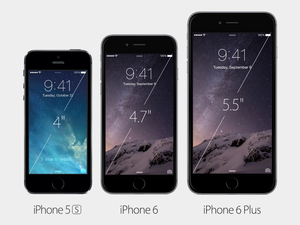Samsung Electronics and South Korean mobile operator SK Telecom plan to demonstrate next week research into future "5G" wireless and data transmission at 7.55Gbps.
The two companies, which formed a research and development agreement on 5G wireless in October, will show the technology at the Mobile World Congress expo in Barcelona. The annual event, the biggest in the wireless telecommunications industry, begins on Monday.
The transmission will use millimeter wave frequencies, which are generally considered to be those over 6GHz. That's higher than current mobile phone and Wi-Fi frequencies and brings advantages and disadvantages.
Among the advantages is the high speed that is possible but the disadvantages include poor propagation. Millimeter wave signals generally require an unobstructed transmission path, which means walls, windows and other objects can easily interfere or cut off communications. This is seen in direct-to-home satellite TV systems, which also use millimeter waves at around 11GHz and where the dish needs a clear view of the satellite in the sky.
To help realize the high-speed data, the two companies are employing "3D beamforming" -- a technique that involves sensing the location of a smartphone and directing a narrow pencil-like transmission beam toward it. A cellular base station usually transmits signals over a wide area, but with more intelligent antenna systems in 5G wireless that could change.
Cellular carriers and equipment makers are looking at millimeter wave frequency bands to help alleviate crowding in lower frequencies and better serve users in crowded cities. Because millimeter waves are easily attenuated by objects, the same frequencies can be reused in areas close to each other, perhaps separated by a building, without fear of interference. That leads to more efficient use of spectrum.
Samsung and SK Telecom's research into 5G wireless is being driven in part by a desire to launch the world's first commercial 5G network. The two companies are hoping to realize that in South Korea in 2020, two years after Japan's NTT DoCoMo is targeting the launch of a demonstration network in Tokyo. The Japanese network is timed to go on-air with the 2018 Tokyo Olympic Games.
Martyn Williams covers mobile telecoms, Silicon Valley and general technology breaking news for The IDG News Service. Follow Martyn on Twitter at @martyn_williams. Martyn's e-mail address is martyn_williams@idg.com


















